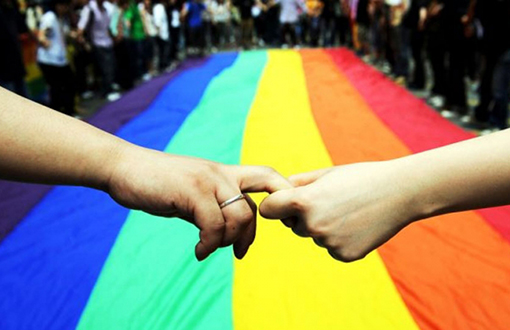In a nation where 90 percent of marriages are arranged, it is still not possible for people to accept same-sex marriage or relationships. Despite being decriminalised, same-sex relationships in India are still not accepted and often face a lot of stigmas. The law and attitude in our society live in disparity because of which certain people and communities are denied their basic rights.
Recently, coming to the rescue of the same-sex couple, a judge at Madras High Court attempted to move beyond his own preconceived notions while dealing with a protection plea filed by a lesbian couple. Surprisingly, during the hearing of the case, Justice N Anand Venkatesh came with an absolutely unusual and unexpected order and asked the parents of the same-sex couple to undergo counselling by a specialist in LGBTQ issues.
Earlier this month, the judge decided to hear the case on-camera but then later realised that the case needs to be dealt with sensitivity and empathy. The judge believed the case to be a “sample case of how actually the society even now is grappling to come to terms with same-sex orientation.”
“To be open, I am also trying to break my own preconceived notions about this issue and I am in the process of evolving and sincerely attempting to understand the feelings of the petitioners and their parents, thereafter proceed to write a detailed order on this issue. That is the reason why I am trying to develop this case brick by brick and ultimately, construct something purposeful on this issue. “
– Justice N Anand Venkatesh, Madras High Court
The case:
In the petition, a lesbian couple sought protection for their living together without any disturbance from their parents. The two women aged 22 and 20 respectively have been in a relationship for the past two years and wanted to be together for life. But the parents of both the women raised objections to the relationship and are pressurising them to separate.
During the hearing, the couple said the judge that they were friends and their friendship soon blossomed into love around two years ago. The couple even accepted that they are very clear about their decision and want to spend their lives together with each other.
The petitioners were residents of Madurai and fled to Chennai in the first week of March after their parents opposed their relationship. In Chennai, the couple was given a safe shelter by a city-based NGO, but later one of the girl’s parents lodged a complaint of kidnap with the Madurai police. Following the complaint, Madurai police started harassing the couple and the NGO which made them approach the High Court.
It was also found that the couple’s parents were unable to accept their relationship as they were more concerned about the security of the duo in society. Noting this, the court even arranged an interaction for the couple with their parents and ordered counselling sessions for the parents of the couple with a specialist in LGBTQ issues in order for the parties to work towards a peaceful resolution.
What’s more interesting here is to note that during the hearing the judge of the High Court even accepted that because of the sensitivity of the case, he also did some research to understand the situation better. He even said that it would be hypocritical of him to proceed with any academic observations in the case now as he is still unlearning his own preconceived notions about the issue.
Paving way towards LGBTQ rights:
Though legalising same-sex marriages in India is still a distinct dream but it is also true that India is paving its way towards providing the LGBTQ community the long-lost rights that they deserve. It was in 2018 when the Supreme Court of the country legalised homosexuality and struck down Section 377 of the Indian penal court. The court even recognised the fact that society needs to transform progressively and the LGBT community has a right to live with dignity. The court even said:
“History owes an apology to the members of this community and their families, for the delay in providing redressal for the ignominy and ostracism that they have suffered through the centuries.”
Apart from this, the country is also working towards recognising transgender as the third gender apart from male and female and is taking possible steps towards positive growth. The government is also taking steps to identify the needs and wants of the transgender community in order for them to get the respect they deserve. Central and various state governments are working towards building separate toilets, especially for the transgender community.
The battle for equality, recognition, and citizenship for the queer community has been long and still ongoing. But now with the support and judicial recognition, the goals of equality for every individual irrespective of their sex and gender can be achieved.

